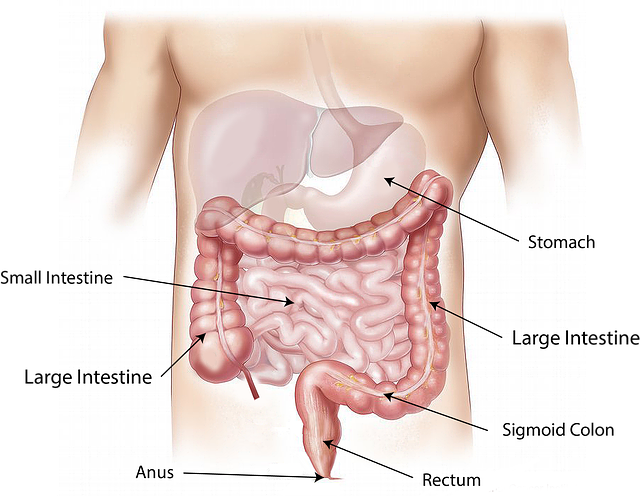Ulcerative Colitis:
Inflammatory bowel disease can cause inflammation in the small and large intestine, in other words, inflammation of the bowel. Colitis refers specifically to inflammation of the colon, or the large intestine. Ulcerative colitis is a type of inflammatory bowel disease that tends to form ulcers along the inner-surface or a lumen of the large intestine, including both the colon and the rectum. These ulcers are spots in the mucosa where the tissue has eroded away and left behind open sores or breaks in the membrane.
Sometimes there's a flare which means that new damage has occurred, and then there are periods of remission when the tissue starts to heal up. Ulcerative colitis is the most common type of inflammatory bowel disease, not that there are that many, but this one causes inflammation and ulcers in the mucosa and submucosa of the large intestine only, which is an important point that sets it apart from Crohn disease, another inflammatory bowel disease.
Now although certain environmental factors like diet and stress were once thought to be the culprit behind these ulcers forming the gut, now it's not that these are more secondary, meaning they seem to make the symptoms worse, but ulcerative colitis is now ultimately thought to be autoimmune in origin.
In fact, cytotoxic T cells from the immune system are often found in the epithelium lining the colon, so the thought is that inflammation and ulceration in the large intestine are caused by T cells destroying the cells lining, the walls of the large intestine, leaving behind these eroded areas or ulcers. It's unclear what exactly these T cells are meant to be targeting though.
Symptoms of Ulcerative Colitis:
• As more damages is done to the tissue, patients experience pain in the left lower quadrant, which corresponds to the rectum.
• More severe and frequent bouts of diarrhea, sometimes with blood in the stool as well.
• As the mucosa and epithelium are destroyed blood and serum may be released into the lumen, which contributes the blood seen in the stools.
Treatment for Ulcerative Colitis:
Treatment for ulcerative colitis depends on the severity of symptoms.
Often anti-inflammatory medications are given, like sulfasalazine or methylamine. In more severe cases though, drugs that suppress the immune system, like corticosteroids, azathioprine or cyclosporine might be prescribed.
Finally, if these treatment options fail, sometimes the patient will have a colectomy, which is a surgical removal of the colon. Since the disease only affects the large intestine, removal of the colon cures the disease, but you have to weigh the benefits of curing the disease against the total loss of the large intestine.
Some of the best recommendations:















Some of the best recommendations:















No comments:
Post a Comment